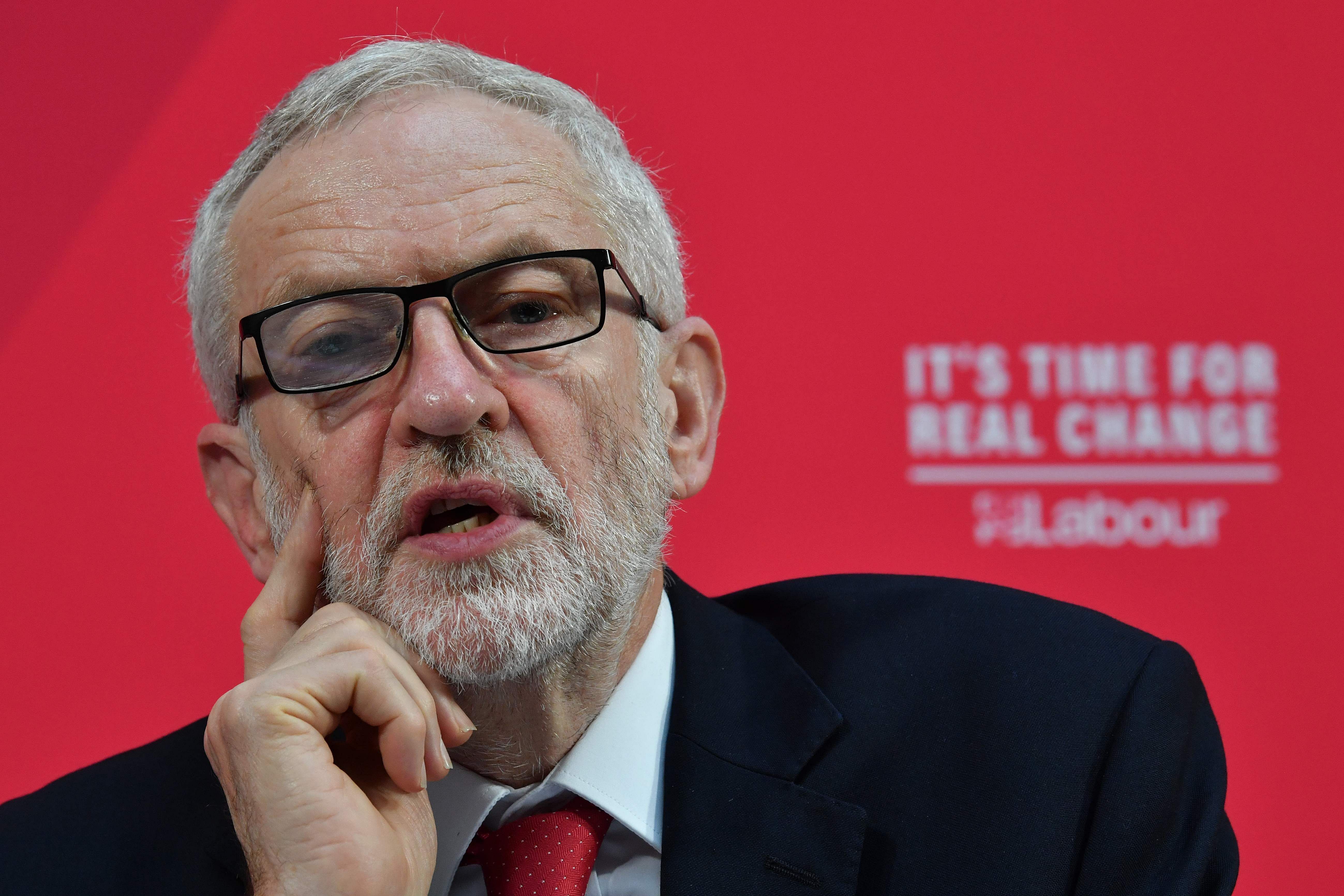
Jeremy Corbyn hopes to become Britain's prime minister this week after a campaign in which the Labour leader has doggedly maintained a neutral line on the burning issue of Brexit.
The 70-year-old leftist has just days left to convince voters that he can heal divisions by impartially presiding over a second referendum on Britain's EU membership.
The main opposition leader is offering the country a choice between a newly-negotiated, softer form of Brexit and staying in the European Union.
His party's manifesto pledges radical plans to "rewrite the rules of the economy", nationalise utilities and splurge money on public services.
Corbyn commands cult-like adoration from enthusiastic, pro-European young supporters in England's larger urban centres.
But to obtain power, he must also shore up pro-Brexit, older traditional Labour voters beyond the cities and convince Conservative and Liberal Democrat backers to switch their vote.
A lifelong campaigner on socialist causes, Corbyn appears happiest when campaigning on the stump, addressing crowds of cheering supporters who share his views.
But unlike the 2017 election, where Corbyn defied opinion polls to slash a massive Conservative lead, this campaign has been less reliant on unscripted tub-thumping appearances.
This time he has relied on presentations of supposedly secret dossiers that he claims prove the duplicity of the man he is seeking to defeat, Conservative Prime Minister Boris Johnson.
The main thrust of Corbyn's campaign has not been on Brexit but on transforming British society.
A key plank has been allegations that Johnson is secretly plotting to sell off the National Health Service in a "toxic" post-Brexit trade deal with US President Donald Trump.
Both Johnson and Trump have vehemently denied the claims, with the Conservatives comparing Corbyn to a desperate conspiracy theorist.
Corbyn's campaign though has seen him battle allegations of anti-Semitism flourishing in the Labour movement under his stewardship.
Britain's most senior rabbi even suggested anti-Semitism was a "new poison" within the party, which had been "sanctioned from the very top".
Corbyn's campaign interviews have, at times, made for awkward viewing.
In one BBC interview, he declined repeated chances to apologise to Britain's Jewish community for anti-Semitism.
On ITV, he was asked whether he watched Queen Elizabeth II's annual 3:00 pm Christmas Day message, the staunch republican gathered his recollections and said: "It's on in the morning usually; we have it on some of the time."
He has lost the support of the left-leaning New Statesman political magazine, which could not bring itself to endorse Labour for the first time since it began in 1913.
"His reluctance to apologise for the anti-Semitism in Labour and to take a stance on Brexit, the biggest issue facing the country, make him unfit to be prime minister," said the weekly.
From an impeccable socialist background -- his parents met as activists in Britain during the Spanish Civil War -- Corbyn was, he told the BBC, a "not academically successful student".
He worked for trade unions before being elected to the House of Commons in 1983.
He never held a major office. Instead, he spent decades on the backbenches championing human rights, leftist and anti-war causes, and was a serial rebel against his party's line.
His image is low-key -- bearded and teetotal, he dislikes wearing a tie, and his hobbies include making jam, allotment gardening and spotting manhole covers.
The Arsenal fan's third wife is Laura Alvarez, who is 20 years his junior and runs a company importing coffee from her native Mexico.
Porridge-fuelled Corbyn does not have a car, instead riding a bicycle around his north London constituency of Islington.
His surprise election as Labour leader in September 2015 came on the back of a surge in support from the party's grassroots.
Growing criticism of his leadership style turned into open rebellion after the June 2016 referendum vote to leave the EU.
Critics said Corbyn's heart did not really seem in the campaign to stay in.
Having lost the confidence of most Labour MPs, he faced a leadership challenge in July by little-known MP Owen Smith. Corbyn saw him off with an even larger mandate.
When Conservative prime minister Theresa May called a snap general election in 2017, Labour were around 20 points behind in the polls.
But Corbyn's energetic rallies, compared to May's wooden photo-opportunities and soundbites, saw Labour claim 40 percent of the vote -- just 2.4 percent behind.
Corbyn will be hoping for a repeat this time round.